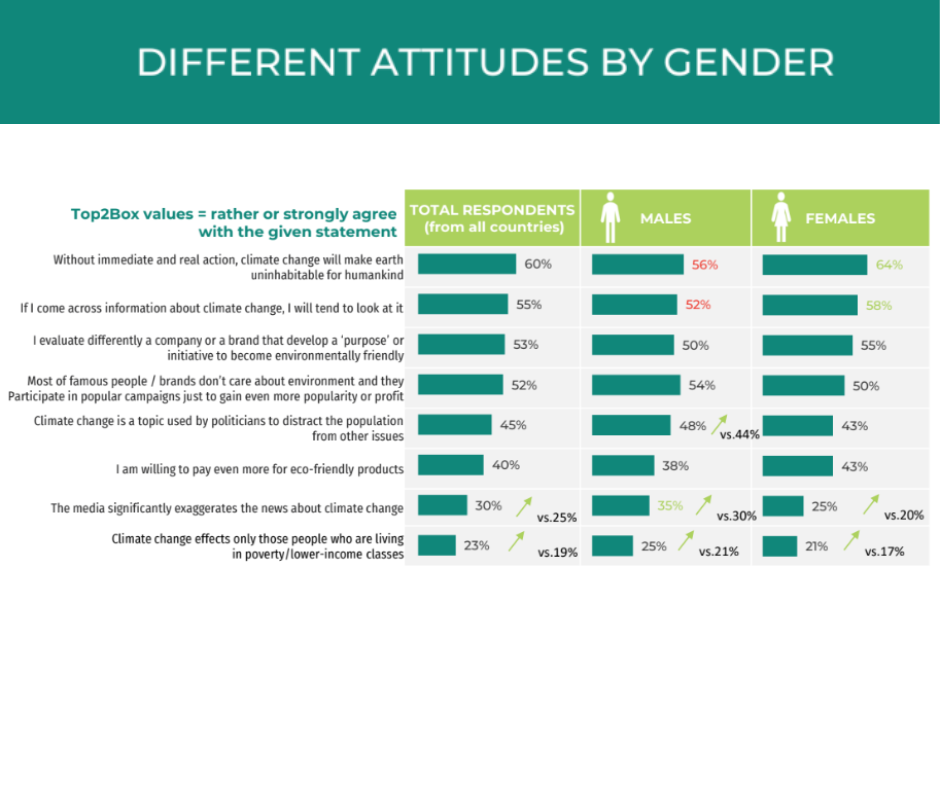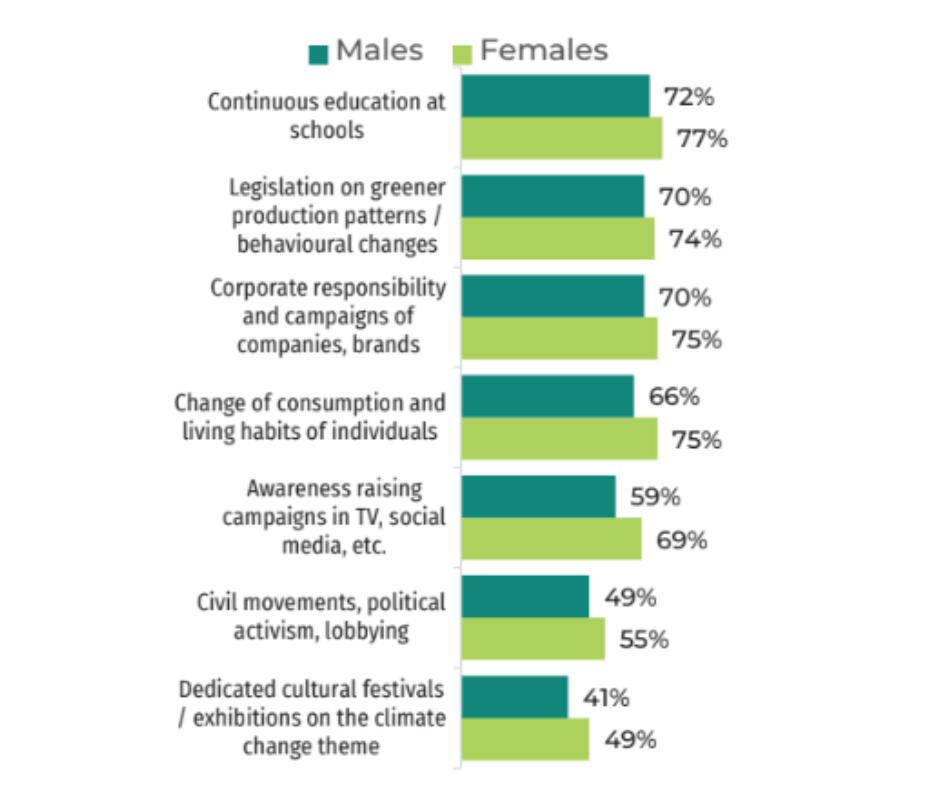How do views on climate change differ between men and women? According to a large study from 2017 a small—but consistent—gender gap in environmental views and climate change opinions.
On average, women are slightly more likely than men to be concerned about the environment and have stronger pro-climate opinions and beliefs. There are several explanations for this gender gap, including differences in gender socialization and resulting value systems ( altruism, compassion), perceptions of general risk and vulnerability, and feminist beliefs including commitment to egalitarian values of fairness and social justice. Some researchers also note that some of the strongest gender differences are found in concern about specific environmental problems, particularly local problems that pose health risks.
Not to mention that climate impacts are reversing gains in gender equality, which amplifies existing inequalities and builds on societal expectations related to gender roles. For example, women and girls in many regions are responsible for securing food, water and fuel, which becomes a lot more taxing during droughts.
We planned to conduct a second survey in 2023 with the cooperation of CEEWeb, our lead partner organization, focusing on how climate change impacts all life on Earth and how our choices affect the ecosystems in order to capitalize on the strong synergies in an emotional, life-centered communication campaign. The evaluation of the survey was compared with the results of the 2021 survey to see how the understanding of the public, and especially the young (18-35 years old) generation, has changed after about one and a half years. The aim of the ‘Game Over?’ project is to support the multi-dimensional and cross-country campaign of CEEWEb for Biodiversity with identifying the most appropriate messages and channels for communication actions.
As a result of this survey we found that in terms of gender women are more likely than men to press for real action on climate change and are more interested in the issue. While the proportion of women who think the media exaggerate the news has also increased, overall, only a quarter of women hold this view, compared to more than a third of men. In terms of gender in general, for almost all factors, the concerns are higher among women, with the only exception being forced migration of people, mentioned by 20% of men compared to 15% of women.


We have found a gender gap, when asked women and men about the actions we need against climate change. The results show that women are more likely than men to emphasize the importance of certain activities. This gender gap, which is observed within the overall sample, holds true for almost all countries 75% as well.

Difference between males and females regarding individual actions (2023)
While 56% of women said they had reduced the use of single plastics in their daily lives, only 45% of men said they had done so. The balance is similarly tilted towards women when it comes to plant-based diets, with 14 percent of women following this compared to 10 percent of men.
Climate change is a threat multiplier, but women can be solution multipliers
Women can make the difference, as workers, consumers, producers and household managers, women are key agents of change in implementing climate-resilient development pathways. Better integration of women into decision-making at all levels would help improve climate mitigation and adaptation policies, according to the United Nations Framework Convention on Climate Change (UNFCCC).
- Why does the younger generation in 2023 feel disappointed, skeptical and pessimistic about climate change?
- What actions do we need to do against climate change?
- How big is the problem?
- Who is responsible?
- And how we can raise awareness and what is the role of the media?
Those are the questions we discuss further in our blog series.
If you want to know when the new blog article will be published, or get more news about the topic sign up to our newsletter here.
If you are interested in the whole survey, you can find it here.



